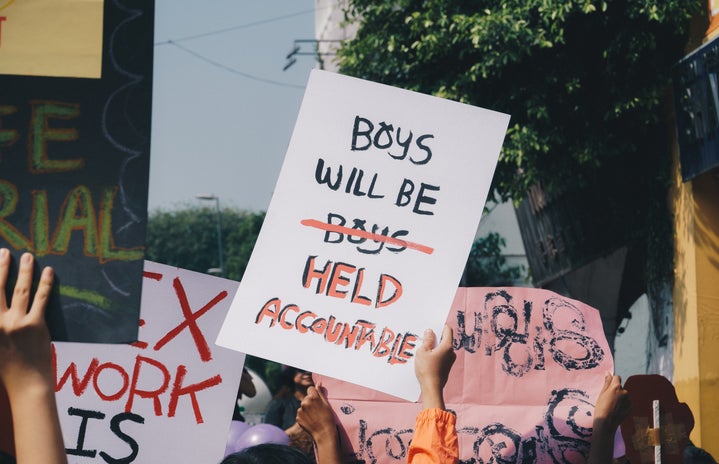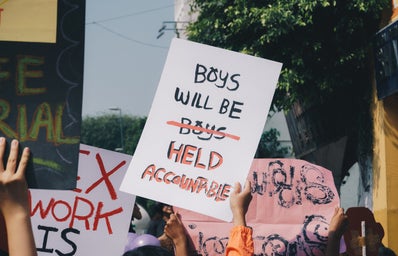TW: sexual assault
Note: the views and opinions of expressed in this article are solely reflective of the author as a student and individual and, while they do pertain to a certain unspecified case, do not reflect the official views of any organization.
Reporting sexual assault or other misconduct to a college administration is a difficult process. The Title IX process involves submitting a formal complaint against a student violating University policies. It usually includes an investigation, university- or police-based, and involves the Office of Student Conduct– the people who can remove a student from AU. As with most cases that require an investigation and legal hoops, the process can be long and exhausting.
Recently, the Instagram account @exposingauabusers has taken matters into their own hands. The student-run account posts anonymous confessions that have led to public shaming of individuals or organizations and calls for the end of Greek life at AU. While it is not necessarily a route that pursues legal action, the results are faster and sometimes fairer via social media.
As a result, students are speaking out online. There are calls to abolish Greek life, to fight rape culture, to reform Title IX, or to remove an individual from campus. Campus organizations are a great way to provide direction and legitimacy to students’ concerns- but there are legal hoops for this too.
An organization I am a part of and work for is dealing with allegations of sexual assault by one of its members. This individual is currently in the Title IX process. As such, even though we have an overwhelming need to speak out in support of survivors and make efforts within our organization to prevent sexual assault, we were limited in what we could say or do.
Firstly, we can not remove the member from the organization until the Title IX process has concluded. We couldn’t even officially call for their removal from the organization or AU. I know that many students were hurt by this restriction. It’s unfair to keep an abuser in a community that they have caused so much pain to.
Despite this setback, students pressed on together to formulate an official statement, without calling for the perpetrator’s removal. Even with this work around, it was not enough. Legally, the organization can not post anything that takes a stance on any case that is currently under investigation. Any official statement could not even recognize the violence within our own organization. At the most, we could stand in support of survivors- practically like a bystander.
The students of the organization have been able to work around these obstacles by creating their own statement that is officially unaffiliated with the organization. But without the organization’s power within the university, it still feels like it falls short.
As an organization, we asked what we could do and it was about as helpful as visiting the AU Title IX resources page. Increase sexual assault prevention training. Encourage victims to report and take legal action. Provide support through official networks or through your community. These are all great steps, but they won’t address the system of abuse at AU and college campuses across the country. It has been frustrating to hear the same advice whenever an issue of systemic oppression arises. Just a few weeks ago, in light of Black Lives Matters protests, organizations echoed the same response: educate and provide support. These actions are not enough to dismantle the systems that we can no longer bear to live with.
We want to do more. I hear and feel your frustration. We are forced to work within the laws that permit this behavior in the first place. As students and young adults, it may feel like there is not much we can do. We can protest, sign petitions, talk to our representatives, and vote, but change still feels slow, if it happens at all. My advice? Keep applying pressure until we see justice. Then, get your degree and change the whole system.
Photos: Her Campus Media




